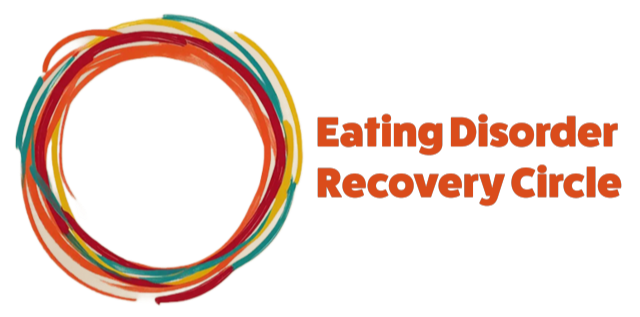How to Travel Without Falling Back Into Restriction
Mar 13, 2025Traveling can be exciting but also deeply triggering in eating disorder recovery.
✔ “What if I can’t control my food options?”
✔ “What if I don’t know when or what I’ll be eating?”
✔ “What if I lose progress and fall back into restriction?”
When routines change, eating disorder thoughts can creep back in, convincing you that restricting is the only way to cope. But travel doesn’t have to mean a return to old patterns—it can be an opportunity to practice flexibility and food freedom.
If travel anxiety is making you feel stuck, check the Feelings Navigator for tools to manage uncertainty and fear of change.
Step 1: Recognise That Control Is Not the Answer
🚫 The eating disorder might tell you that restriction will ‘keep you safe’ while traveling.
✔ But controlling food won’t actually reduce stress—it will make it worse.
✔ Trying to micromanage every meal will drain your energy.
✔ Rigid food rules will prevent you from fully experiencing your trip.
💡 Flexibility—not restriction—is what makes travel enjoyable and recovery sustainable.
📌 If control feels like a safety net, talk through strategies inside The Circle.
Step 2: Plan for Structure, Not Rigidity
✔ Structure can help ease anxiety—but it should be flexible, not obsessive.
🔹 Instead of: Planning every meal in advance.
✔ Try: Making a loose plan to ensure you’re eating regularly.
🔹 Instead of: Bringing only ‘safe foods’ and avoiding restaurants.
✔ Try: Bringing snacks for emergencies but being open to trying new foods.
🔹 Instead of: Skipping meals because of a busy schedule.
✔ Try: Prioritising nourishment like you would at home.
💡 Structure should help you feel safe—not keep you stuck in disordered patterns.
📌 If meal flexibility feels overwhelming, check the Feelings Navigator for tools on managing change.
Step 3: Challenge the Fear of the Unknown
Travel means different food, different meal times, and different routines—and that’s okay.
✔ Your body can handle new foods.
✔ Eating at different times will not ‘ruin’ anything.
✔ Skipping meals because of fear will only make the trip harder.
💡 Your body is adaptable—trust it.
📌 If fear of the unknown is keeping you stuck, ask for reassurance inside The Circle.
Step 4: Expect Discomfort, but Don’t Let It Dictate Your Actions
✔ It’s normal to feel uneasy about eating differently.
✔ Discomfort does not mean you’re doing something wrong.
✔ Eating disorder thoughts may resurface—but you don’t have to act on them.
🚀 Feeling uncomfortable is part of growth—keep moving forward anyway.
📌 If discomfort feels overwhelming, check the Feelings Navigator for self-soothing techniques.
Step 5: Reframe Travel as an Opportunity for Recovery
Instead of seeing travel as a ‘risk’ to recovery, try viewing it as a chance to practice food freedom.
🚫 Instead of: “Travel will make me lose control.”
✔ Try: “Travel will teach me how to trust my body in new situations.”
🚫 Instead of: “I have to stick to ‘safe’ foods.”
✔ Try: “I get to explore new foods without fear.”
🚫 Instead of: “I can’t enjoy travel if I’m not in control.”
✔ Try: “I will enjoy this experience more by being flexible.”
💡 Travel is about experiences—not micromanaging food.
📌 If reframing feels hard, talk it through inside The Circle.
Step 6: Set Boundaries Around Unhelpful Comments or Pressures
Traveling with family or friends may mean dealing with diet talk, body comments, or pressure to eat a certain way.
✔ If someone comments on your food choices:
- “I’m listening to my body and focusing on enjoying the trip.”
✔ If someone makes weight-related remarks:
- “I’m not discussing my body on this trip—let’s focus on making memories instead.”
✔ If someone pressures you to eat differently than you’re comfortable with:
- “I appreciate the offer, but I’m making choices that feel good for me.”
💡 You are allowed to set boundaries that protect your recovery.
📌 If setting boundaries feels hard, check the Feelings Navigator for confidence-boosting tools.
Step 7: Be Kind to Yourself—Progress, Not Perfection
✔ You don’t have to ‘do travel perfectly’ for it to be successful.
✔ If you struggle, it does not mean you’ve failed.
✔ Each time you choose recovery on a trip, you’re reinforcing food freedom.
🚀 Travel is meant to be experienced—not controlled. Let yourself enjoy it.
📌 If guilt or fear arises, connect with others inside The Circle for support.
When to Seek Extra Support
If travel feels overwhelming or is leading to restriction, guilt, or distress, you don’t have to face it alone.
🔹 A recovery coach or therapist can help you prepare.
🔹 Others inside The Circle can share their own experiences and encouragement.
🔹 You are not stuck in old patterns—this can be different.
Next Steps
🎯 If the fear of travel is holding you back, check the Feelings Navigator for tools on handling uncertainty.
🎯 For more real-world recovery strategies, explore other articles inside The Circle.
🎯 Engage in discussions inside The Circle to hear from others who have successfully traveled in recovery.
Final Reminder
🚀 Travel is not the enemy of recovery—it is a chance to grow, to trust your body, and to experience life beyond food rules.
You deserve to explore, enjoy, and eat freely—wherever you are in the world. You are capable of this. ❤️

